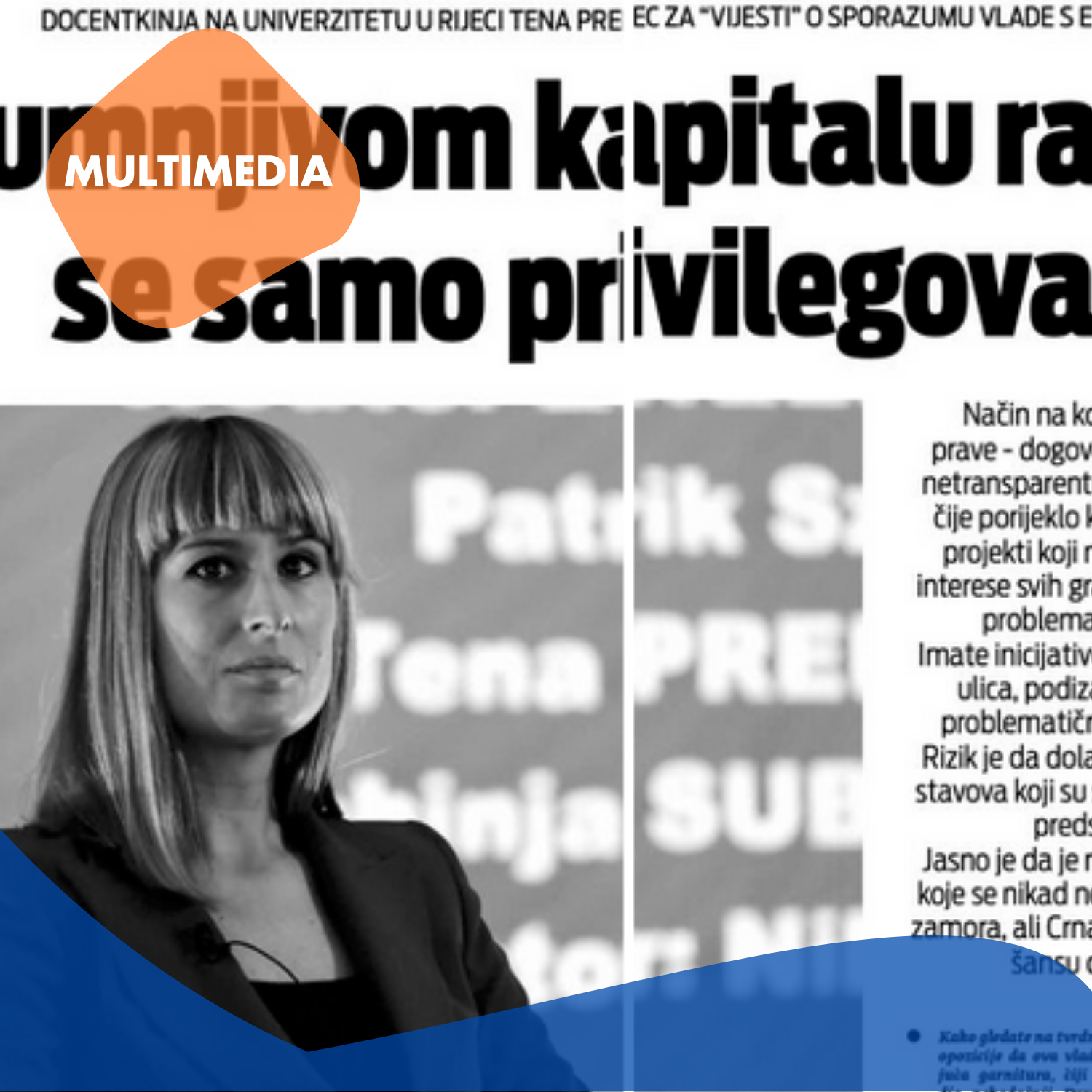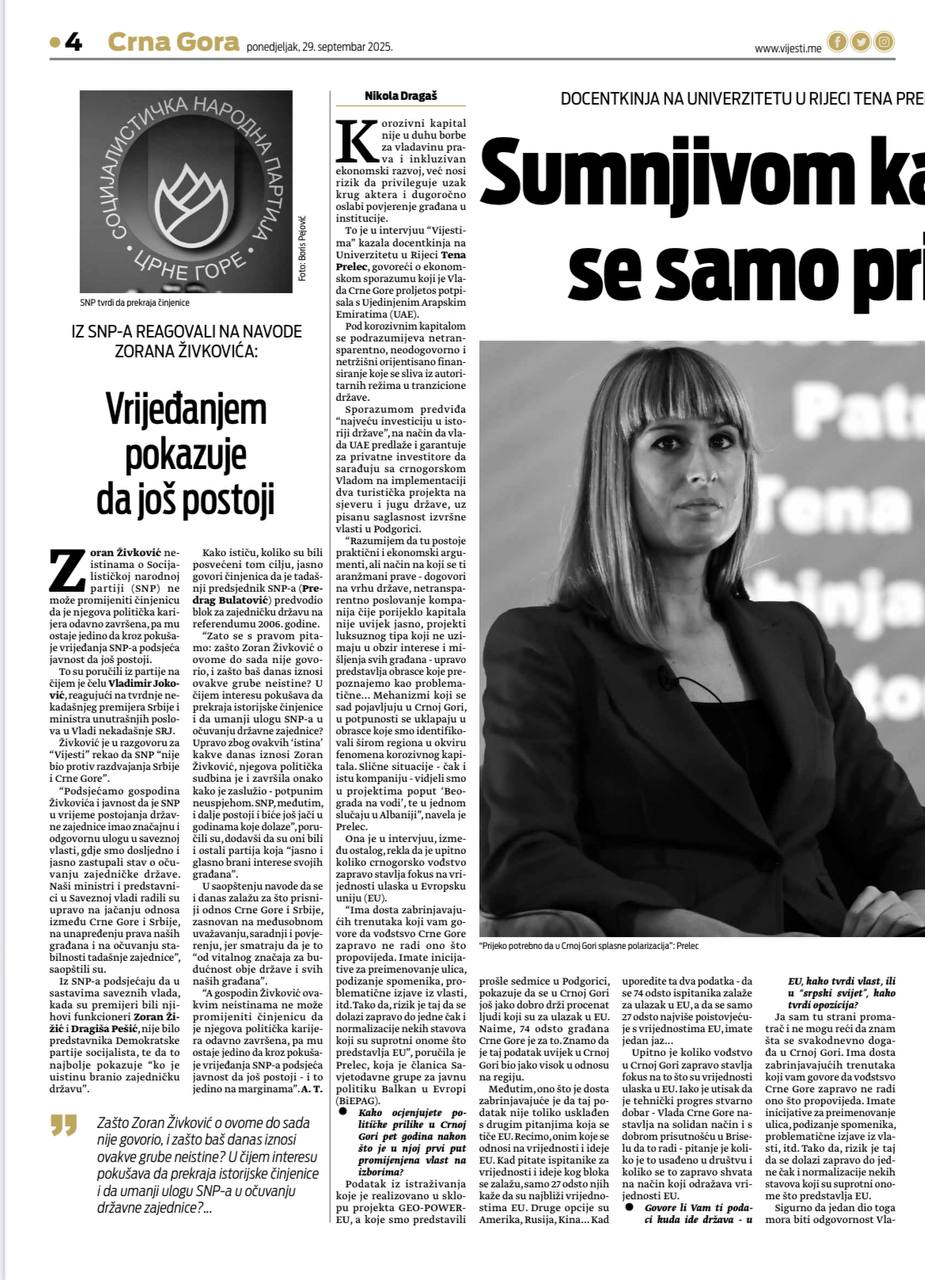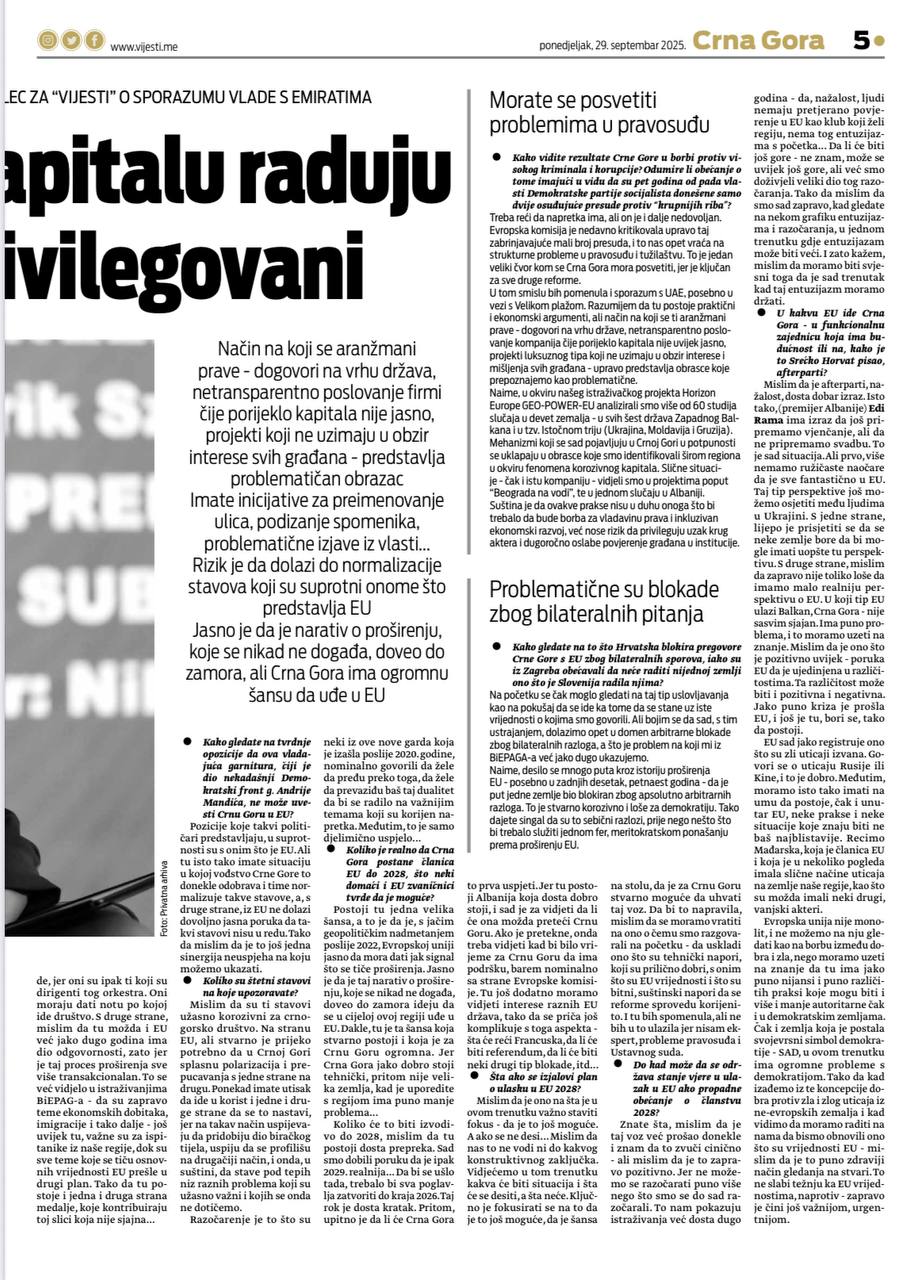Dr. Tena Prelec Highlights GEO-POWER-EU Findings in an interview for Vijesti
Montenegro’s leading daily newspaper, Vijesti, has published an interview with Dr. Tena Prelec (University of Rijeka, BiEPAG) discussing the risks of corrosive capital and public attitudes towards the EU and NATO. The conversation draws on fresh findings from the GEO-POWER-EU Public Opinion Survey and research on corrosive capital, highlighting both the opportunities and challenges that lie ahead for Montenegro’s European path.
Drawing on findings from the GEO-POWER-EU Public Opinion Survey, Dr. Prelec highlights the gap between the high support for Montenegro’s accession to the European Union (74%) and the comparatively low share of citizens who identify with EU values (27%). This discrepancy suggests a disconnect between the technical process of enlargement and deeper societal commitment to European values. According to Dr. Prelec, the reasons are complex and include the Montenegrin government’s failure to prioritise EU values consistently, the Brussels’s mixed messages, and public fatigue with a prolonged and uncertain accession process.
Based on GEO-POWER-EU’s comparative research on corrosive capital. As Dr Prelec explained, the project has examined over 60 case studies across nine countries—the six Western Balkan states plus Ukraine, Moldova, and Georgia. The patterns emerging in Montenegro, particularly through the UAE–Montenegro economic agreement and potential developments in Ulcinj, fit closely with those identified across the region. Similar mechanisms, sometimes involving the same companies, have been documented in projects such as Belgrade Waterfront and in Albania. These arrangements, often negotiated at the highest political level and lacking transparency, privilege a narrow circle of actors while posing long-term risks to the rule of law, inclusive economic development, and citizens’ trust in institutions.
Read the full interview on Vijesti.



